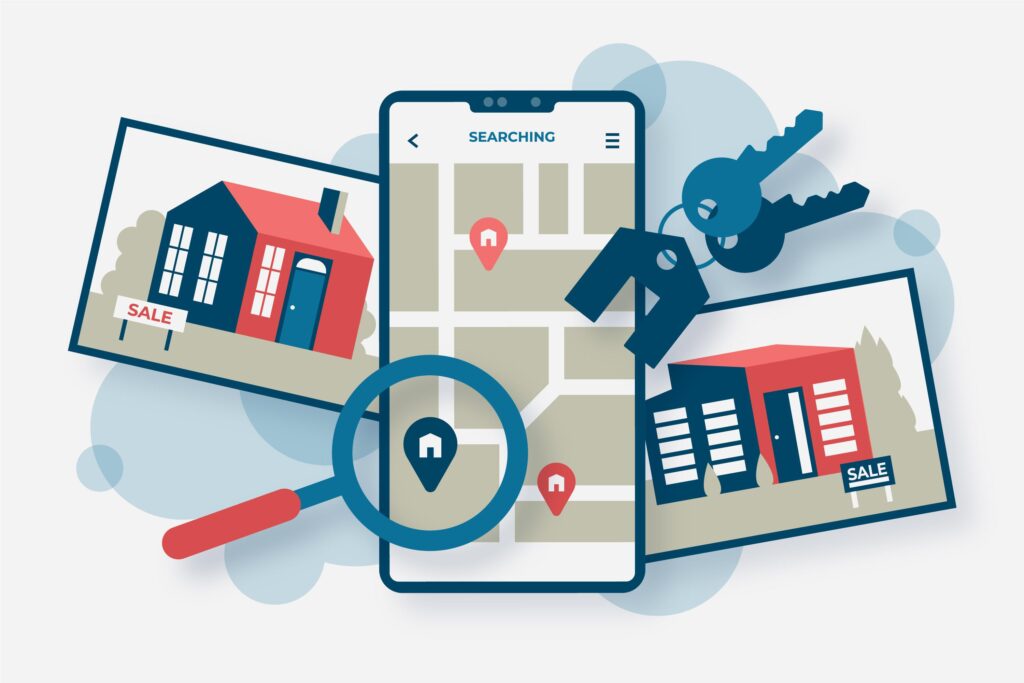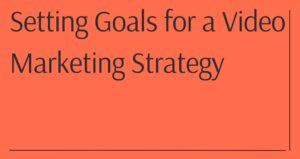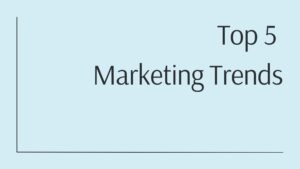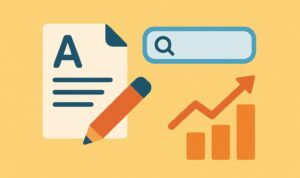So look around, property management is evolving rapidly. Managing properties has become a multifaceted task, encompassing everything from rent collection to tenant management and financial reporting. With the increasing complexity of managing multiple properties, you might find it challenging to stay on top of everything without the right tools. That’s where Property Management Software (PMS) comes into play. This tool is designed to simplify and automate a myriad of property management tasks, allowing you to focus on growing your business.
So, what exactly is property management software, and why should you consider integrating it into your workflow?
What Is Property Management Software?
At its core, Property Management Software (PMS) is a digital solution designed to streamline and automate various tasks involved in managing properties. Whether you own residential buildings, commercial properties, or a combination of both, a robust PMS solution can help you manage leases, track tenant communications, and handle maintenance requests all in one place. By integrating these processes, the software enhances efficiency and ensures you never miss a deadline or forget about a critical task.
Most PMS platforms are cloud-based, which means you can access them from any device with an internet connection. This offers flexibility, enabling you to manage properties on the go. Some software solutions even come with mobile apps, allowing for a truly dynamic experience.
Who Uses Property Management Software?
PMS is not a one-size-fits-all tool. It is used by various stakeholders in the real estate industry, ranging from individual landlords to large property management firms. Whether you manage a few rental properties or oversee a vast portfolio, this software can be tailored to suit your needs.
Different Users of PMS:
Individual Landlords: If you own one or two rental properties, you might use a more simplified version of the software that primarily helps with rent collection, tenant communication, and lease tracking.
Property Managers: If you manage multiple properties, PMS becomes essential for overseeing maintenance requests, accounting, and legal compliance.
Real Estate Agents: For agents involved in property rentals or leasing, PMS assists in managing client portfolios and tracking important dates such as lease renewals.
Commercial Property Owners: Commercial properties come with additional complexities, including managing multi-tenant spaces and dealing with different lease types. A PMS tailored for commercial properties helps handle these intricacies.
Functions Managed by Property Management System
PMS covers an extensive range of functions. While the specific features can vary from one software to another, most solutions offer core functionalities aimed at making your life easier. These functions streamline property management, ensuring you can manage day-to-day tasks without any hassle.
Tenant Management
One of the primary functions of any PMS is tenant management. This feature allows you to track tenant details, manage leases, send reminders for rent payments, and handle renewals. It also stores all tenant-related information, making it easy for you to access necessary details at any time.
Rent Collection
Gone are the days when rent collection was a cumbersome, manual process. With PMS, rent collection is automated. You can set up payment reminders, track late payments, and even implement online payment gateways for tenants to pay via credit card, bank transfer, or other means.
Maintenance Tracking
Maintaining properties involves a lot of coordination between landlords, tenants, and contractors. Property management software lets you log maintenance requests, assign tasks to vendors, and track progress—all in one platform. You can even automate routine maintenance schedules.
Financial Management
Managing finances is one of the trickiest aspects of property management. A PMS system simplifies this by automating the invoicing process, tracking expenses, and generating financial reports. Some advanced PMS solutions also integrate with accounting software to give you a 360-degree view of your financial health.
What Are the Benefits of Property Management Software?
PMS is not just a tool to manage day-to-day tasks; it’s a game changer for anyone managing properties. If you’re still relying on spreadsheets, emails, and manual processes, you’re missing out on a ton of potential benefits. Here’s why you should consider making the switch.
Increased Efficiency
With automation at the core of PMS, you’ll find that routine tasks—such as sending rent reminders, tracking maintenance requests, and logging tenant interactions—are streamlined, freeing up valuable time. The software allows you to manage everything in one place, reducing the likelihood of errors and missed deadlines.
Better Tenant Experience
Happy tenants are more likely to stay longer, and PMS can significantly improve their experience. With features such as online portals for rent payments and maintenance requests, tenants feel more connected and supported. A responsive management system encourages timely communication and faster problem resolution.
Financial Transparency
One of the biggest challenges in property management is keeping track of finances. PMS offers you real-time financial reporting, so you can instantly see cash flows, outstanding payments, and other critical financial metrics. This level of transparency can help you make informed business decisions faster.
Data-Driven Decision Making
With all your property-related data centralized in one platform, you’ll have easy access to reports and insights. Whether it’s tracking occupancy rates, analyzing tenant turnover, or managing expenses, PMS gives you the data you need to optimize operations.
Landlord-Specific Features of Property Management Solution
If you’re a landlord, PMS is more than just a convenient tool—it’s an asset. Many PMS solutions offer features specifically tailored to landlords, helping you manage your properties with ease. Below are some key features that will make your life as a landlord much easier.
Lease Management
Lease management is perhaps one of the most crucial elements for landlords. A PMS allows you to store lease agreements, set reminders for lease renewals, and automate the lease generation process. This ensures that all your tenants’ contracts are well organized and accessible.
Rent Roll Tracking
For landlords managing multiple properties, keeping track of rent rolls can be a daunting task. PMS provides a clear overview of rent schedules, past payments, and any upcoming dues. This way, you never have to worry about missing payments or tracking late fees.
Legal Compliance
Laws regarding property management can be complex and vary from one location to another. PMS systems often come equipped with legal compliance features that help you stay updated with local property laws, regulations, and documentation requirements.
Types of Property Management Software
Not all property management software solutions are created equal. Depending on your needs, you’ll want to choose a system that aligns with your business goals. Let’s explore the various types of PMS available in the market.
Cloud-Based PMS
Cloud-based PMS is becoming increasingly popular due to its accessibility and ease of use. With these systems, you can manage your properties from anywhere, as long as you have an internet connection. Data is stored securely in the cloud, making it both flexible and reliable.
On-Premises PMS
Unlike cloud-based solutions, on-premises PMS requires installation on your computer or server. While it offers more control over data security, it also requires more IT infrastructure and regular maintenance.
Hybrid PMS
Hybrid solutions offer a mix of both on-premises and cloud features. They are ideal for businesses that want the flexibility of cloud-based solutions but still need certain functionalities to remain on local servers for security reasons.
How to Choose Property Management Software?
Selecting the right PMS can be a daunting task, especially with the multitude of options available. However, by focusing on your specific needs, you can narrow down your options and find the perfect fit. Here are some tips to help you make an informed decision.
Identify Your Needs
Before you even start looking at software, take the time to assess your current property management processes. What areas need improvement? Do you need help with tenant communication, rent collection, or maintenance tracking? Understanding your needs will help you find a system that offers the right features.
Budget Considerations
PMS solutions can range from basic packages to more advanced systems with a higher price tag. It’s important to set a budget and find software that provides the best value for your money.
Ease of Use
No matter how powerful a PMS system is, it won’t be helpful if it’s too complicated to use. Opt for software with an intuitive interface and good customer support. Look for demos or free trials to test the software before committing.
Implementing Property Management Program Into Your Business
Once you’ve chosen the right PMS, the next step is to implement it into your business. While the idea of switching to a new system might seem overwhelming, proper planning and training can make the transition seamless.
Employee Training
One of the most critical steps in implementing PMS is training your staff. Everyone who will use the software must be comfortable navigating it. Many PMS providers offer training modules or customer support to help with onboarding.
Data Migration
If you’re currently using spreadsheets like Google Sheets, Microsoft Excel, or another software system, migrating your data to the new PMS is a crucial step. Work with your software provider to ensure that all your data is transferred correctly and securely.
Test Run
Before fully switching over, do a test run with the new software. This will allow you to identify any potential issues and make sure everything is working as expected before going live.
Conclusion
Property Management Software is no longer a luxury but a necessity for efficient property management in today’s competitive real estate landscape. As a landlord or property manager, juggling multiple responsibilities can be overwhelming, and manual methods are prone to errors, inefficiency, and missed opportunities. That’s where a PMS steps in, automating routine tasks, simplifying communication, and offering real-time insights that empower you to make data-driven decisions.
By adopting the right software, you not only streamline your operations but also enhance tenant satisfaction, which in turn boosts your occupancy rates and long-term profitability. It’s essential to select a PMS that aligns with your specific needs, whether you’re managing a single property or a diverse portfolio. And remember, the investment you make in a high-quality software solution will pay off with time savings, reduced stress, and improved financial control.
Ultimately, integrating property management software into your business can help you shift focus from the day-to-day tasks to the bigger picture—growing your property portfolio and increasing your bottom line. With the right tools at your disposal, the future of property management is truly in your hands.
FAQ: Property Management Software (PMS)
PMS improves efficiency by automating routine tasks, reducing paperwork, enhancing communication, and providing valuable insights through data analytics, ultimately saving time and increasing profitability.
Yes! Many PMS options are scalable and offer features that cater to both small property managers and large real estate firms, making them versatile for various needs.
Absolutely! Most PMS solutions provide tenant portals where tenants can pay rent online, submit maintenance requests, and communicate with property managers easily.
Reputable PMS providers implement strong security measures, including data encryption and regular backups, to protect sensitive information from unauthorized access.
Yes, PMS typically involves subscription fees or one-time setup costs. It’s essential to evaluate different options to find a solution that fits your budget and needs.





